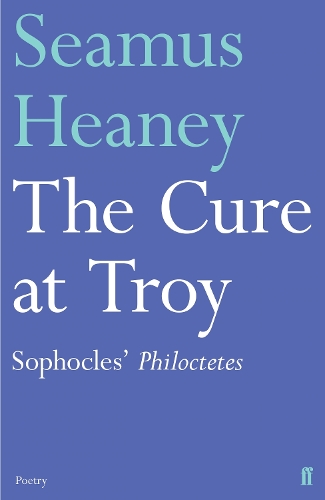
The Cure at Troy
(Paperback, Main)
Publishing Details
The Cure at Troy
By (Author) Seamus Heaney
Faber & Faber
Faber & Faber
24th January 2018
18th January 2018
Main
United Kingdom
Classifications
General
Non Fiction
Ancient, classical and medieval texts
822.914
Physical Properties
Paperback
88
Width 130mm, Height 197mm, Spine 7mm
125g
Description
Seamus Heaney's version of Sophocles's Philoctetes tells of the wounded hero marooned upon an island by the Greeks during the Siege of Troy. As the conflict comes to a climax, the Greeks begin to realise they cannot win the Trojan war without Philoctetes's invincible bow, and turn back to seek his help.
The Cure at Troy dramatizes the conflict between personal integrity and political expediency, and explores ways in which the victims of injustice can become as devoted to the contemplation of their wounds as the perpetrators are to the justification of their system. Responsive to the Greek playwright's understanding of the relations between public and private morality, The Cure at Troy is a sharp, fast-paced retelling of the Greek original, shot through with Heaney's own Irish speech and context.
History says, Don't hope On this side of the grave. But then, once in a lifetime The longed-for tidal wave Of justice can rise up, And hope and history rhyme
Author Bio
Seamus Heaney was born in County Derry in Northern Ireland. Death of a Naturalist, his first collection of poems, appeared in 1966, and was followed by poetry, criticism and translations which established him as the leading poet of his generation. In 1995 he was awarded the Nobel Prize in Literature, and twice won the Whitbread Book of the Year, forThe Spirit Level (1996) and Beowulf (1999). Stepping Stones, a book of interviews conducted by Dennis O'Driscoll, appeared in 2008; Human Chain, his last volume of poems, was awarded the 2010 Forward Prize for Best Collection. He died in 2013.
